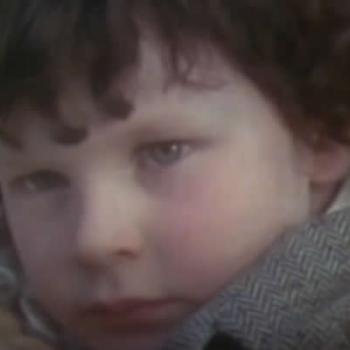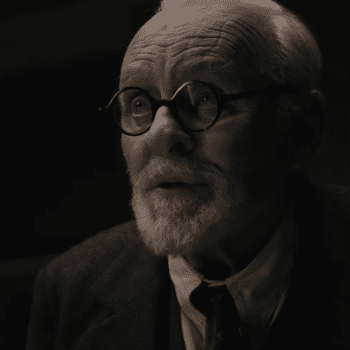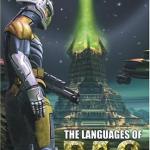
Under the tutelage of the Ancient One, Strange begins to walk this new spiritual path of his. It’s not a religion, the Ancient One insists. The seemingly magical “spells” they use, are more akin to programs designed to work through and in the “multiverse.”
And yet, there’s an undeniable aspect of faith to it all, even beyond the obvious occult trappings in which these spells are used. Strange is forced to embrace spiritual paradoxes, to relinquish his idea of control, to set aside the very things that made him so great at his job. “Your intellect has taken you far in life,” the Ancient One says, “but it can take you no farther.” At another juncture, she tells Strange one of the secrets of faith, particularly Christian faith. “It’s not about you.”
But faith never escapes without a challenge, and Strange’s challenge comes in the form of Kaecilius (a riveting Mads Mikkelsen). This one-time pupil of the Ancient One (cue laborious, Darth Vader breathing) turned away from her path and followed his own—in part because of the Ancient One’s hypocrisy. Kaecilius discovered that the mystic had been tapping into something called the Dark Dimension for years. It gave her the key to her incredible longevity. Now Kaecilius wants to scrap the hypocrisy, welcome the Dark Dimension’s overlord (Dormammu) to earth and thus (he thinks) earn eternal life.
Now, this is where it gets theologically interesting to me: In revealing the Ancient One isn’t as great as she seems, Derrickson dives headlong into two very real, very spiritual issues.
The first is hypocrisy. We Christians have dealt with that issue a lot: Many of our spiritual leaders have taken a tumble, which forces us to question what they’ve been teaching us all this time.
But it also opens the door with what we do with the compromises we all sometimes make for what appear to be worthy reasons. The Bible tells us to never lie, but should we lie to protect someone else’s feelings or preserve a confidence? The Bible tells us to submit to authority, but should we submit to an authority that we know is awful?
Derrickson gives us three characters who deal with those ethical, spiritual compromises in starkly different ways.
The first is Kaecilius, who takes the Ancient One’s compromise as an excuse to do anything he wants with his power. The Ancient One lied to us, he says. Her path is therefore wrong. Evil, even. We must make our own. And his own led him directly to Dormammu and his darkness.

Mordo (Chiwetel Ejiofor), Strange’s fellow pupil, is a man of rigorous morality. As such, he sees the Ancient One’s compromise as a betrayal. She didn’t lead them down the wrong path: She fell off it. She broke the rules. And that’s something he just won’t do. In Christian jargon, he’s all about truth without the softening agent of grace. He’s a Pharisee. An inquisitor.
Strange, too, is crestfallen when he learns of the Ancient One’s falsehood. But he deals and comes to understand that a certain flexibility is important in the job. The Ancient One, in fact, suggests that Mordo and Strange need each other—Strange needs Mordo’s strength, while Mordo could use Strange’s flexibility.
This unfolds in two very interesting ways. With one fold, one could argue, Strange becomes a defender a moral relativism. He’s willing to bend the rules to get what he perceives as a just outcome. For him, the ends justify the means. In the movie that rule-bending feels justified, what with the need to save the planet and all. But moral relativism is a squishy thing. And while Mordo is positioned at the end of the film as Strange’s future antagonist, I wonder whether Derrickson is truly setting him up as a villain or a much more interesting nemesis—one who might have a point.
“We broke our rules just like her,” Mordo tells Strange as he makes ready to leave him. “The bill comes due. Always.” There’s a certain ring of truth in that.
But fold it a different way, and Strange becomes Derrickson’s avatar for Christian grace.













